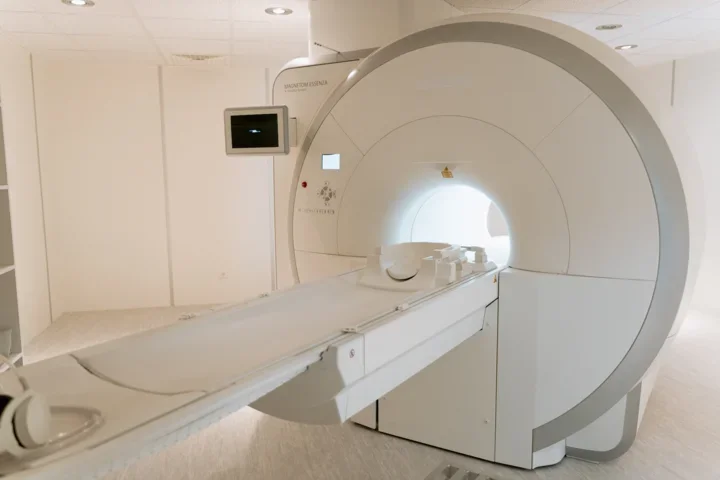New CDC report shows large jump in gun-related deaths

It’s a ‘human-rights’ crisis, says Dr. Ninez Ponce, director of the UCLA Center for Health Policy Research, who is studying gun violence
Gun violence isn’t just a criminal justice issue, it’s a public health issue, says Michael Rodriguez, MD, MPH, a professor at the David Geffen School of Medicine at UCLA and the UCLA Fielding School of Public Health.
Recent data released by the U.S. Centers for Disease Control and Prevention show that firearm-related deaths reached a new peak in 2020, of 45,222 — an increase of 13.5% over 2019. Homicides increased by 33.4% between 2019 and 2020.
Dr. Rodriguez has been studying gun violence for more than 25 years. He and Ninez Ponce, PhD, director of the UCLA Center for Health Policy Research and a professor at the UCLA Fielding School of Public Health, recently received a grant to explore the issue in California, where about 3,000 people died by gunfire in 2019 — 54% by suicide. There were 500 more gun homicides in California in 2020 than in 2019.
“Gun violence kills people. It also injures many more people and maims people and provides them with disabilities for life. These are health impacts,” Dr. Rodriguez says. “By recognizing that guns are causing these health impacts, we recognize that it’s a health problem. Once we recognize it as a health problem, we can think about it the way we do other health problems.”
He points to COVID-19 as an example of what a public-health response looks like. Once the deadly nature of the virus was understood, doctors, scientists and the community at large looked for ways to mitigate the threat. They mapped and studied the virus, developed effective vaccines, investigated potential treatments and outlined personal and collective interventions to help stop the spread of the disease.
“It’s the same way with guns,” Dr. Rodriguez says. “We can look at what’s going on. We can look at what are the risk factors. We can look at what we can do to reduce the gun violence in sensible ways and then implement them.”
Previous gun-violence reduction efforts, such as outlawing specific weapons, resulted in a drop in deaths and injuries, he says.
'By recognizing that guns are causing these health impacts, we recognize that it’s a health problem. Once we recognize it as a health problem, we can think about it the way we do other health problems.'
DR. MICHAEL RODRIGUEZ
The three-year grant, which Dr. Rodriguez and Dr. Ponce received in 2020 from the philanthropic National Collaborative on Gun Violence Research, will support research on gun ownership and attitudes among understudied groups represented in the population-based California Health Interview Survey (CHIS). The annual survey comprises responses from more than 20,000 residents across California.
Research key to public-health efforts
Dr. Ponce, the principal investigator of CHIS, considers the gun-violence epidemic in the U.S. to be even more than a public health issue. She calls it a “human-rights crisis.”

“It’s the leading cause of premature death in the United States,” she says, adding that to prevent death, disability and injury from firearms, we need research and data on what interventions might be most effective.
“One of the main pillars of public health is prevention,” Dr. Ponce says. “These preventable deaths and injuries fuel researchers and advocates to produce actionable data to promote policies and programs that reduce violence, especially among at-risk communities.”
Until recently, federal funding for gun-violence research was limited by a 1996 amendment that prevented the CDC from using public funds for studies that “advocate or promote gun control.” Congress clarified the law in 2018, and allocated $25 million the following year to study gun safety, splitting the funds between the CDC and the National Institutes of Health.
According to the CDC, more people were killed by firearms than traffic accidents in the U.S. in 2019: nearly 40,000. In 2020, 38,824 people were killed in traffic accidents; more than 45,000 were killed by guns.
(Incidentally, motor-vehicle safety is another area that has benefited from public-health research, as studies led to seat belt mandates and other regulations that significantly reduced car-accident injuries and deaths.)

Dr. Michael Rodriguez
Dr. Rodriguez and Dr. Ponce will focus their research on young adults, veterans, immigrants and members of the LGBT community.
“We suspect there may be more people who own guns in these categories than we thought, because of the fear many of them have and the persecution many of them have experienced,” Dr. Rodriguez says. “Unfortunately, while fear frequently drives people to get a gun, with the thought that having that gun will increase their safety, the reality is that a handgun in the home increases the risks for homicide and for suicide in that home.”
Veterans are at high risk of suicide from self-inflicted gunshot wounds, Dr. Ponce notes, and are more likely than other Americans to own a firearm. According to a 2019 report by the Department of Veterans Affairs, the suicide rate is 1.5 times higher for veterans than non-veterans and firearms were the method in 70% of male veteran suicide deaths.
In addition, guns were the leading cause of death among children and teens in 2019, according to the Coalition to Stop Gun Violence. The same was true in 2020, with firearm-related injuries the leading cause of death among children and adolescents.
The aim of UCLA’s research and other public-health explorations of gun violence is to inform public policies, Dr. Rodriguez says, adding that public sentiment already favors increased gun-safety measures. Various polls show that a majority of Americans, including a majority of gun owners, support such policies as universal background checks and allowing a judge to remove guns from people at risk of hurting themselves or others.
Reaction to opioid crisis can serve as example
Dr. Rodriguez says he hopes to see gun safety addressed with the same nonpartisan energy as the opioid epidemic.
“Republicans and Democrats are coming together to find sound ways to provide information about opioids, to provide laws to protect the public,” he says of the drug crisis. “Everybody in the public knows that opioids are dangerous — they’re dangerous and let’s do something about it. Same thing we should be doing with guns: get together with those who we elect and help create safer environments.”
Dr. Ponce notes that the United States has more guns and more gun deaths than other high-income countries. The loss isn’t only in lives, but in dollars, with gun violence costing the U.S. more than $280 billion annually in medical care, criminal-justice costs, employer costs and work loss.
“Building research and data on gun violence enables policymakers and advocates to make strides toward gun-violence prevention,” she says. “It’s even more critical now with all of the tragic events happening around the nation with racial tensions amidst the pandemic, which has been fraught with devastating losses.”
Despite near-daily shootings in the U.S., Dr. Rodriguez remains hopeful that thoughtful research on firearms and the damage they inflict can generate enough public and political support to change laws and ultimately protect people from unnecessary injury and death.
“I’ve seen it work,” says Dr. Rodriguez, whose research as a postdoctoral fellow at Stanford University contributed to the movement to outlaw cheap, low-caliber guns known as “Saturday night specials,” resulting in a statewide ban in 1997.
Sound research can inspire a similar movement nationwide, he says.
“Just like with tobacco, with opioids — we’ve got to change this around, and we can do it,” he says. “We can do it because people want things to be different. And I think we, in the health professions, can help advise on what it is we need to do to help make our communities and our homes safer.”
Learn more about the work of the UCLA Center for Health Policy Research.
Original Article: New CDC Report Shows Large Jump in Gun-related Deaths



